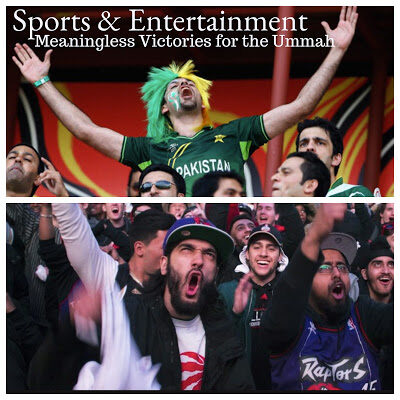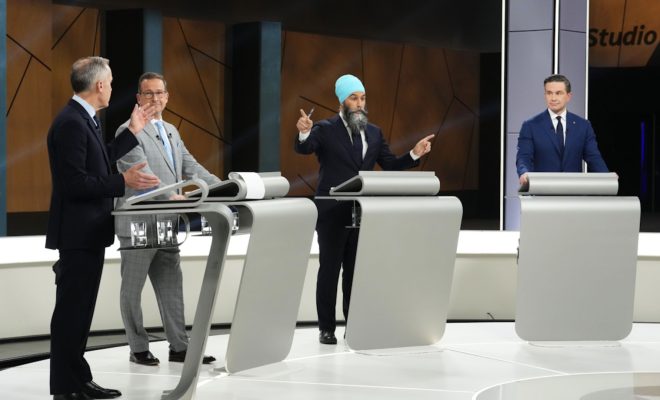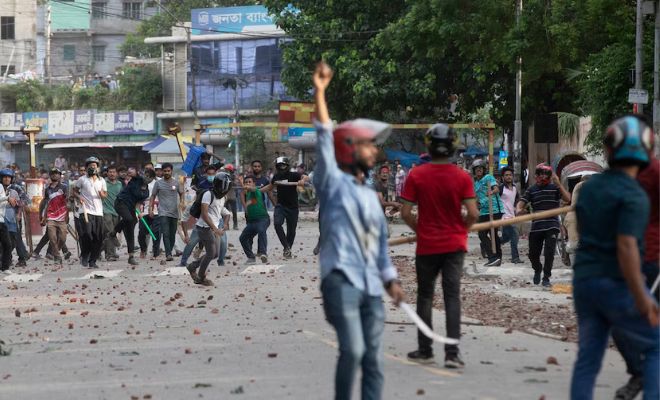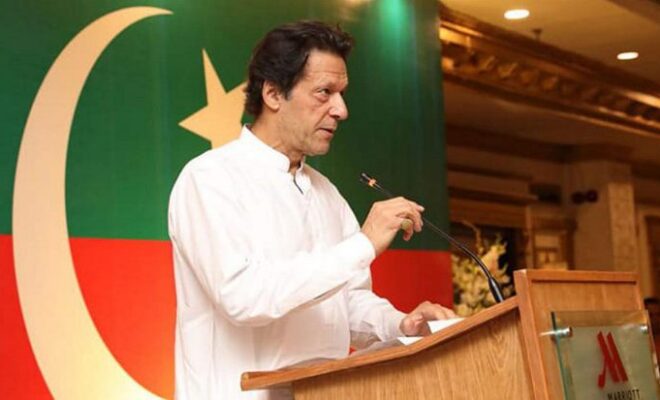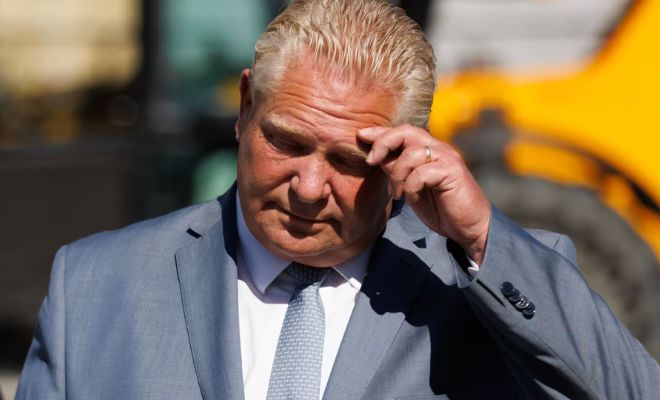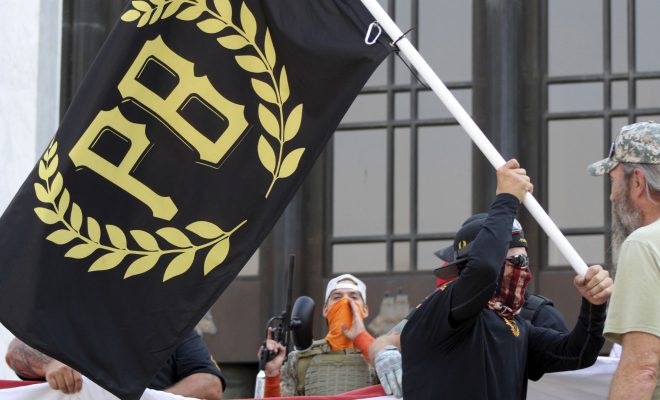Beyond the Lesser of Two Evils: Towards the Politics of Rasul’Allah SAW

On Eid al Adha this year, an Iraqi refugee in Sweden went outside the largest masjid in the country wearing two Swedish flags, blaring the national anthem, and proceeded to desecrate the Quran. He tore pages out, burned them, and placed bacon in the Quran.
This action was not spontaneous. Rather, the refugee had sough permission from the government to engage in this act and had been granted permission form the police. The Swedish government, while it distanced itself from the burning, condemned it, and said they are exploring charges against the burner, reiterated that Sweden supports the right to assembly and freedom of expression.
The big discussion following this event in the media was how this would affect Sweden’s application for entry into NATO. NATO is a military alliance that requires the consent of all member countries in order to admit another country into the alliance. One of these member countries is Turkey, that had previously clearely stated that Sweden would have to respect religious values in order to gain support from Turkey. And after this event, Erdogan had promised consequences for the arrogant West. But, at the beginning of this month, Turkey agreed to let Sweden join the military alliance.
While Muslims around the world celebrate Erdogan, and other rulers like him, for their defiant statements in defense of Islam and Muslims, what does this difference between the word of these rulers and their actions teach us? And how can we use this lesson in order to rally around leadership that will truly protect the Ummah?
Politics as Theatre
Politics in Islam is different from politics in Capitalist societies. In Islam, politics or siyasah means looking after the affairs of the people and is a continuation of the work of the prophets. Our beloved messenger told us:
“The Children of Israel were being ruled by the Prophets. When one prophet died, another succeeded him. There will be no prophet after me. Caliphs will come after me, and they will be many.” [Bukhari and Muslim]
Imam Nawawi commented on this hadith:
“[They] were ruled by the Prophets” means the Prophets took care of their affairs as rulers who are in charge of the people do. Thus, siyaasah means to take care of something in a manner that maintains its well-being and serves its interests.
This concept of politics, as a prophetic legacy that is meant to take care of the affairs of people, is radically different from what most think when they hear the word. This is because politics under secular liberalism is little more than saying the right things and making the correct gestures in order to gain popularity and power in society, without having to do anything to actually take care of the affairs of the people.
This explains why Erdogan is able to be held up as a champion of Islam and have Muslims all over the world celebrate his electoral victory in Turkey, while he is running a secular government that is part of a military alliance that attacks Muslim lands.
It is why he can make strong statements against Zionist occupation, while being a key trade partner for the Zionist entity. Israel could not meet its energy demands and would run out of construction material if it weren’t for Turkey.
This is why he can claim to be a friend of the Syrian people and a supporter of their revolution, while closely allying with Russia, the country whose army was relied upon by Assad’s regime to destroy the revolution. And why he has committed to deporting 1 million Syrian refugees living in Turkey back into the hands of Assad’s bloodthirsty regime. In just the first 2 weeks of July, more than a thousand Syrian refugees living in Turkey have been rounded up for deportation, prompting some to fear leaving their house, even to attend Jumah.
A Systemic Problem
The chasm between Erdogan’s words and actions are not the result of merely a personal weakness or a flaw in his character. While it is important for us to call him out on his dishonesty, it is crucial to understand that as long as Erdogan or any Muslim politician is committed to a liberal democratic system, dishonesty and hollow words are the only way to succeed.
This is because parties in a liberal democracy are still committed to the system of Capitalism, an ideology that is built on maximizing the self interest of the individual. This means that those individuals born with the most wealth, talent or connections are able to dominate the system, running everything according to their own interests. These elites are the ones who control the economic, domestic, and foreign policy of a country. The elected official’s job is just to keep people bought into the system by making statements and gestures that resonate with them. In the case of the Muslim lands, most of these elites are not even from the country. Rather, Muslims are ruled by a local elite that is loyal to the Capitalist West and is an extension of the influence of the colonial powers in the Muslim lands.
We cannot expect any protection of our interests, or any provision of our needs from such a system, beyond that which serves the interests of the elite.
The Lesser of Two Evils is Evil
The argument that we commonly hear from those who defend supporting the likes of Erdogan is that while he does commit haram, he is “the lesser of two evils” as compared to the pro-Kemalist candidate. They argue he is better to have in office because he will inflict less evil on the Ummah than the alternative. In other words, it will be “beneficial” (provide maslaha) to the Ummah.
It must be noted that choosing between the lesser of two evils, is only allowed in Islam if choosing one of the two evils is unavoidable. For example, if our choices were starvation or eating pork, we can eat just enough of the haram meat to survive. If our choices were to touch a non-mahram who was drowning to rescue them, or let them die, we would rescue them. When it comes to supporting the Muslim rulers in Turkey and elsewhere, there is an alternative. That alternative is to withhold our support from such leaders. Muslim has narrated in the Hadith of Auf bin Malik that the Prophet (saw) has said:
“There will be Amirs, you will recognise some of what they do, and you will deny some. Whoever disliked them he will cure himself of the sin, and whoever denied he will be safe, but the one who agreed and followed (will not).”
Consequently, it is an obligation to heed these words of our master RasulAllah (saw) and not support Erdogan or the other rulers in the Muslim lands if we want to be safe on the Day of Judgment. Instead, we should look to the example of our beloved Messenger (saw) and follow him. He (saw) worked fearlessly, tirelessly, neither compromising, nor allying with any disbelieving power or system under the cover of the “lesser of two evils” concept. Specifically, when Quraish offered him to be the King, he (saw) refused. Consequently, we must follow RasulAllah (saw) and not advocate for anyone that supports the corrupt systems currently implemented in the Muslim lands.
Transformational Politics
What is needed is a different way to do politics in the Muslim lands. Instead of pinning our hopes on those who can do nothing but deceive us, we need to hold our politicians to a higher standard. The Sahaba, may Allah (swt) be pleased with them, would speak out against even minor infractions that they perceived from the Khulufa of their time.
In order to reach this level of accountability and fairness, we will have to commit ourselves to the politics of the Prophets, as mentioned by our Beloved Prophet (saw), which is politics that is based on the guidance revealed by the Creator. The guidance of Islam does not just instruct us on how to do our ritual acts of worship, or what our personal morals should be. It also teaches us how to deal with our families, how to manage our business relationships and transactions, and how to structure an economic, social and political system as well.
It is incumbent upon us as an Ummah to learn about these systems, and use whatever platform is available to us to call for their implementation in the Muslim world. We cannot expect our lands to be safe, our resources to be used productively, and our youth to be headed in the correct direction if we neglect this duty.
What is more, we cannot expect our purpose as an Ummah, to enjoin good and forbid evil, to be fulfilled, if we cannot demonstrate to the world the full light and radiance of Islam as applied in our societies. As our Creator tells us:
“You are the best nation produced [as an example] for mankind. You enjoin what is right and forbid what is wrong and believe in Allah. If only the People of the Scripture had believed, it would have been better for them. Among them are believers, but most of them are defiantly disobedient.” [TMQ 3:110]
What does such a transformational leadership look like?
We only have to go back a few decades when the Uthmani Khilafah was still with us and witness the example of Sultan Abdul Hamid II (rh). When he heard that the French and the British were putting on a play insulting RasulAllah (saw), was he content with just offering empty rhetoric? No, he was not. Instead, he threatened them both with war. They put aside their concept of free speech and took his threat seriously. Though he was well aware that the Ottoman khilafah was collapsing, he knew what it meant to practice Islamic politics and fulfilled the responsibility that came with his position.
May Allah (swt) bring us back leaders that will defend Islam, the Ummah, and bring hope to all. Ameen.
“But perhaps you hate a thing and it is good for you; and perhaps you love a thing and it is bad for you. And Allah knows, while you know not.” [TMQ 2:216]

